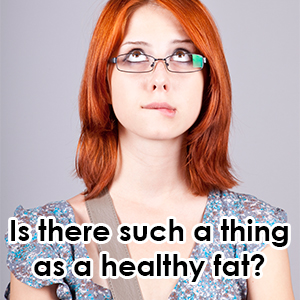 With all the talk about low-fat diets you see in magazines, book stores and TV, you may wonder if there are good things about fats at all. But there are. In fact, your body needs fats to be healthy. So let me share some facts about fats.
With all the talk about low-fat diets you see in magazines, book stores and TV, you may wonder if there are good things about fats at all. But there are. In fact, your body needs fats to be healthy. So let me share some facts about fats.
Unhealthy Fats Overview
Unhealthy animal-based saturated fats, transfats and hydrogenated vegetable oils cause increased incidence of cardiovascular diseases, diabetes and obesity.
Animal-based fats must also take into account the health of the animal, whether it is a genetically engineered animal, what it was given to eat and more. You can substitute healthy fats to prevent disease and lower your calorie intake, too.
Beneficial plant-based fats from healthy sources
Coconut oil is a plant-based saturated fat that works in and on your body to promote health. It has so many good qualities and has no harmful side effects. You can fry with it, add it to smoothies and just eat it as is. I enjoy having it on toast instead of butter. I also use it to saute vegetables.
Avocados are made of plant-based monosaturated fat. This is good for your heart and lowers bad cholesterol. It has a buttery taste and creamy consistency and can be used in place of mayonnaise and spread on your sandwiches for example.

Another plant-based monosaturated fat is olive oil. It is high in Omega 3 fatty acids and contains polyphenols that are antioxidants. These polyphenols found only in extra virgin olive oil and nowhere else. It is what gives olives there bitter taste.
Healthy polyunsaturated fats include walnuts and sunflower, sesame and pumpkin seeds; Omega 3 fatty acids, rich flaxseed and fatty fish (salmon, tuna, sardines, mackerel herring, and trout); soymilk and tofu.
Other healthy plant-based monosaturated fats are nuts and nut butters (almond, macadamia and cashew), peanut butter, peanut oil, sesame oil and sunflower oils.
Animal-based fats from healthy sources
Why would you even consider using healthy animal-based fats? Some people feel that most plant-based oils, if not used quickly will become rancid and taste off soon after opening. They would recommend buying smaller bottles. Animal-based fats have a longer, more stable, shelf life and give a more familiar taste for people switching over to healthy fats.
Healthy fats from organic healthy animals include: butter, ghee, tallow and lard, and chicken fat — also known as “schmaltz” in kosher cooking. These animal fats are traditional foods eaten mainly by people who did not have major illnesses caused by the food they ate. The animal-based fats are only considered healthy if consumed at the rate of under 10% of total calories. In short, if only 2-3 tablespoons are consumed daily, you can use these animal fats and still be OK health-wise.
Handmade butter, made from organic grass fed cream, is very healthy. It contains vitamins D, K and K2, all depending on the source cow’s health.
Ghee is a variation on clarified butter (also known as drawn butter) because it is cooked to further eliminate water and allowing the proteins to be removed. What remains is a light yellow oil that contain about 25% medium and short chain fatty acids. Tallow is rendered saturated fat from beef. Lard is rendered saturated fat from pork. Chicken fat is rendered from chicken. All of these rendered fat products can be made at home or purchased online from reputable dealers in organic non-GE animals.
Stay tuned for further posts about healthy fats.

Take Charge of Your Health!
Changing your eating habits can be tough. But it doesn’t have to be if you take a little time to think it out and create a plan.
This Healthy Eating Worksheet will walk you through the process of creating a healthy eating plan. All you need to do is print it out, set aside some time to complete it, and then fill it out. Then you can create your plan, knowing that you have addressed potential obstacles and came up with some creative ways to handle them.


